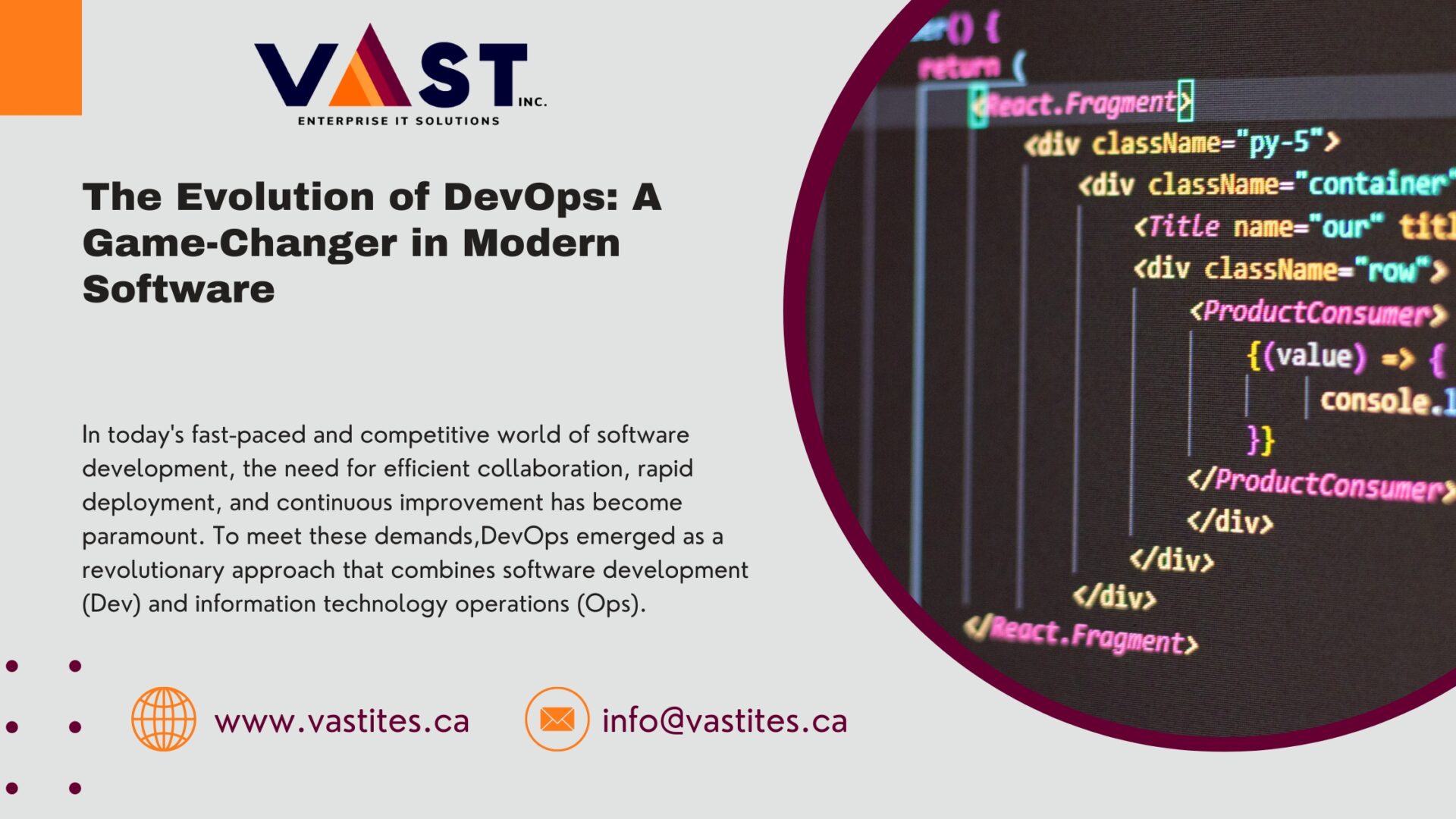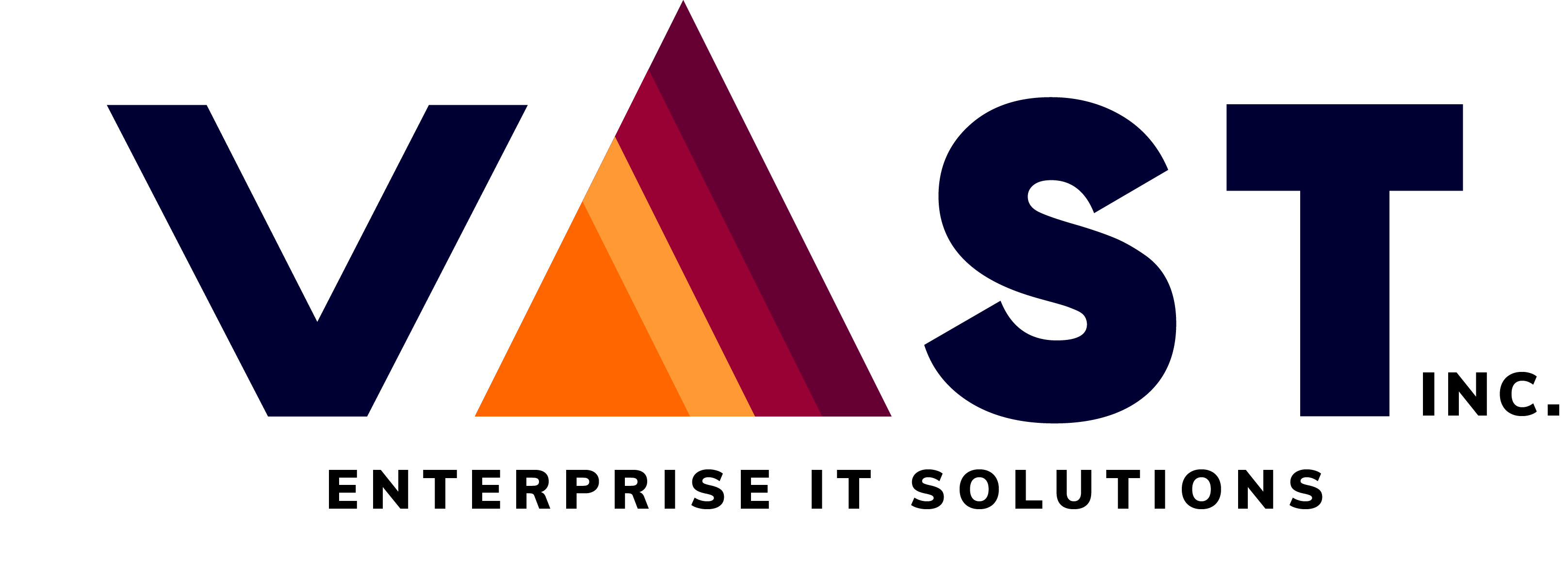
- June 28, 2023
- vastadmin
- 0
Introduction:
In today’s fast-paced and competitive world of software development, the need for efficient collaboration, rapid deployment, and continuous improvement has become paramount. To meet these demands, DevOps emerged as a revolutionary approach that combines software development (Dev) and information technology operations (Ops). This blog explores the history, creation, and future prospects of DevOps, while subtly highlighting the significance of the best DevOps consulting in Toronto.
The Birth of DevOps:
The seeds of DevOps were sown when the traditional siloed approach to software development began to hinder progress. In the early 2000s, software development and IT operations were considered separate entities with conflicting goals. Developers focused on producing new features and functionalities, while operations teams focused on stability and reliability.
The term “DevOps” was coined in 2009 by Patrick Debois and Andrew Clay Shafer during a conference called “Agile Infrastructure.” It aimed to bridge the gap between development and operations by fostering a culture of collaboration and shared responsibilities.
Principles of DevOps:
Automation:
Automation lies at the core of DevOps. By automating repetitive tasks such as build, testing, and deployment processes, teams can accelerate the delivery of software, minimize errors, and ensure consistency. Automation tools and frameworks, such as Ansible, Chef, and Jenkins, enable organizations to streamline their workflows and achieve higher efficiency.
Continuous Integration and Continuous Delivery (CI/CD):
CI/CD pipelines enable teams to continuously integrate code changes, run automated tests, and deliver updates to production. This iterative process allows for rapid feedback, faster bug detection, and the ability to deliver value to end-users quickly. Tools like Git, Jenkins, and Docker play a vital role in implementing robust CI/CD pipelines.
Collaboration and Communication:
DevOps emphasizes cross-functional collaboration, breaking down barriers between teams. Frequent and open communication ensures everyone is aligned, leading to increased efficiency, reduced bottlenecks, and quicker problem resolution. Collaboration tools like Slack, Jira, and Confluence facilitate effective communication and knowledge sharing among team members.
Infrastructure as Code (IaC):
Treating infrastructure as code allows for the automation and version control of infrastructure configurations. IaC tools such as Terraform and CloudFormation enable teams to define infrastructure resources as code, making it reproducible and easily manageable. This approach ensures consistency, repeatability, and the ability to scale infrastructure easily.
The Future of DevOps:
As technology continues to evolve, the future of DevOps holds tremendous potential for further advancement. Here are a few areas where DevOps is expected to make a significant impact:
DevSecOps:
With cybersecurity threats growing in complexity, integrating security practices into the DevOps process becomes imperative. DevSecOps promotes a culture of security, where security measures are built into every stage of the software development lifecycle. Tools such as SonarQube, Checkmarx, and OWASP ZAP aid in integrating security testing and vulnerability scanning into the CI/CD pipeline.
AIOps and Machine Learning:
Artificial Intelligence for IT Operations (AIOps) leverages machine learning algorithms to automate and enhance various aspects of DevOps, such as log analysis, anomaly detection, and incident response. AIOps can help teams identify patterns, predict failures, and improve overall system resilience. Tools like Splunk, Datadog, and Dynatrace leverage AI and ML techniques to provide insights into system performance and automate troubleshooting processes.
Serverless Computing:
Serverless computing allows developers to focus solely on writing code without worrying about infrastructure management. As this paradigm gains popularity, DevOps will need to adapt to effectively deploy and manage serverless architectures. Tools such as AWS Lambda, Azure Functions, and Google Cloud Functions enable serverless deployments and provide seamless scalability and resource allocation.
Cloud-native Technologies:
The adoption of cloud-native technologies, such as containers and orchestration platforms like Kubernetes, enables efficient application deployment and scalability. DevOps will continue to evolve to harness the benefits of these technologies and facilitate seamless integration with cloud providers. Tools like Docker, Kubernetes, and Helm are widely used in implementing containerization and managing cloud-native applications.
Conclusion:
DevOps has transformed the software development landscape by revolutionizing the way teams collaborate, deploy, and iterate on their products. By breaking down silos and fostering a culture of collaboration, organizations can leverage DevOps to accelerate time-to-market, enhance product quality, and improve customer satisfaction.
As businesses in Toronto seek the best DevOps consulting services to drive their digital transformation, it is essential to recognize the value of expert guidance and support. With the right DevOps consulting in Toronto, organizations can unlock the full potential of DevOps practices, adopt the latest technologies, and gain a competitive edge in the market.
In this fast-paced era, where speed and agility are paramount, the best DevOps consulting in Toronto becomes a strategic partner, guiding businesses towards success in their software development initiatives.
